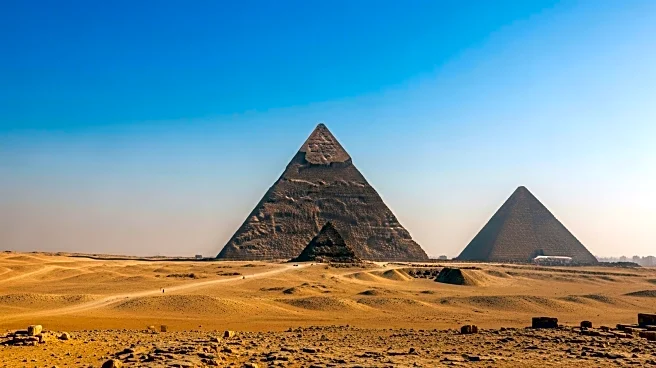Cairo, the capital of Egypt, has a significant footprint in the Arab world, marked by its geographic reach, institutional presence, and economic and social impact. As one of the largest cities in the Arab world, Cairo's influence extends beyond its borders, impacting the region and the global community.
Geographic Reach
Cairo's geographic reach is vast, with the city serving as a major urban center in the Arab world. The Greater Cairo metropolitan area is one of the largest in the world by population, with over 22.8 million people. Cairo's strategic location along the Nile River has also made it a key player in trade and commerce, with the city serving as a hub for economic activity in the region. The city's geographic reach extends beyond its borders, impacting the Arab world and the global community.
Institutional Presence
Cairo's institutional presence is evident in its role as a center for Islamic learning and culture. Institutions like Al-Azhar University have played a crucial role in the dissemination of knowledge and the development of Islamic thought. Cairo's political influence is also evident in its role as the capital of Egypt, with the city serving as a center for political power and decision-making in the Arab world. The city's institutional presence extends beyond its borders, impacting the region and the global community.
Economic and Social Footprint
Cairo's economic and social footprint is significant, with the city serving as a major center for trade and commerce in the Arab world. Cairo's strategic location along the Nile River has made it a key player in economic activity, with the city serving as a hub for trade and commerce in the region. The city's social footprint is also evident in its vibrant cultural scene, with Cairo's music, art, and literature influencing the Arab world and beyond.
Environmental or Community Impact
Cairo's environmental and community impact is a subject of concern and debate. The city's rapid development and modernization have raised concerns about the preservation of its historical and cultural heritage. Additionally, Cairo's role as a major urban center has led to challenges related to urbanization, including issues of pollution, congestion, and resource management. Despite these challenges, Cairo's impact on the region and the global community remains significant, with the city continuing to play a key role in the cultural, political, and economic landscape of the Arab world.

 Discover Daily
Discover Daily 






